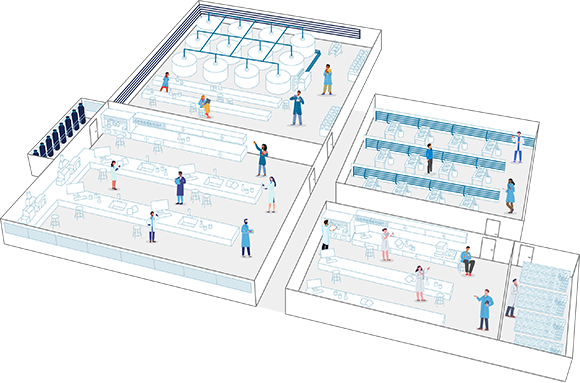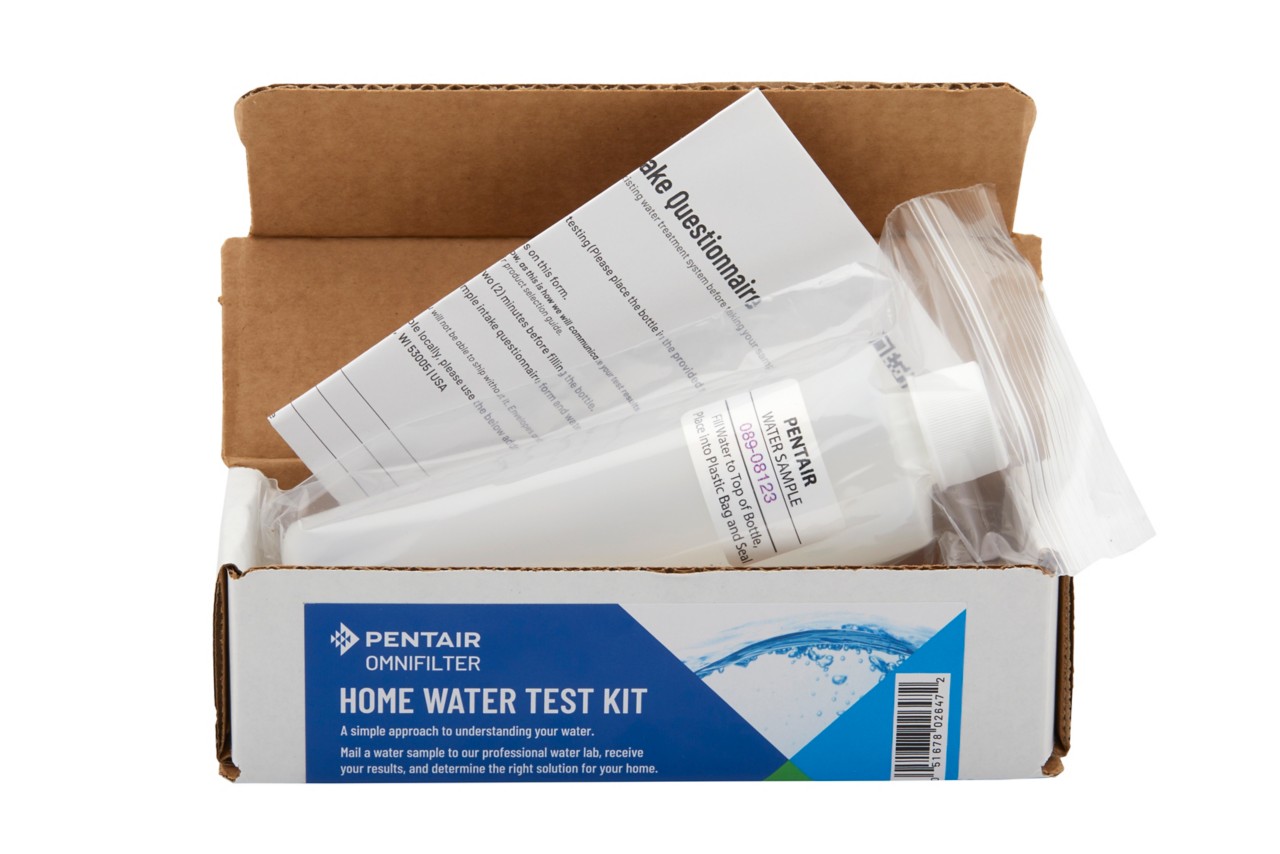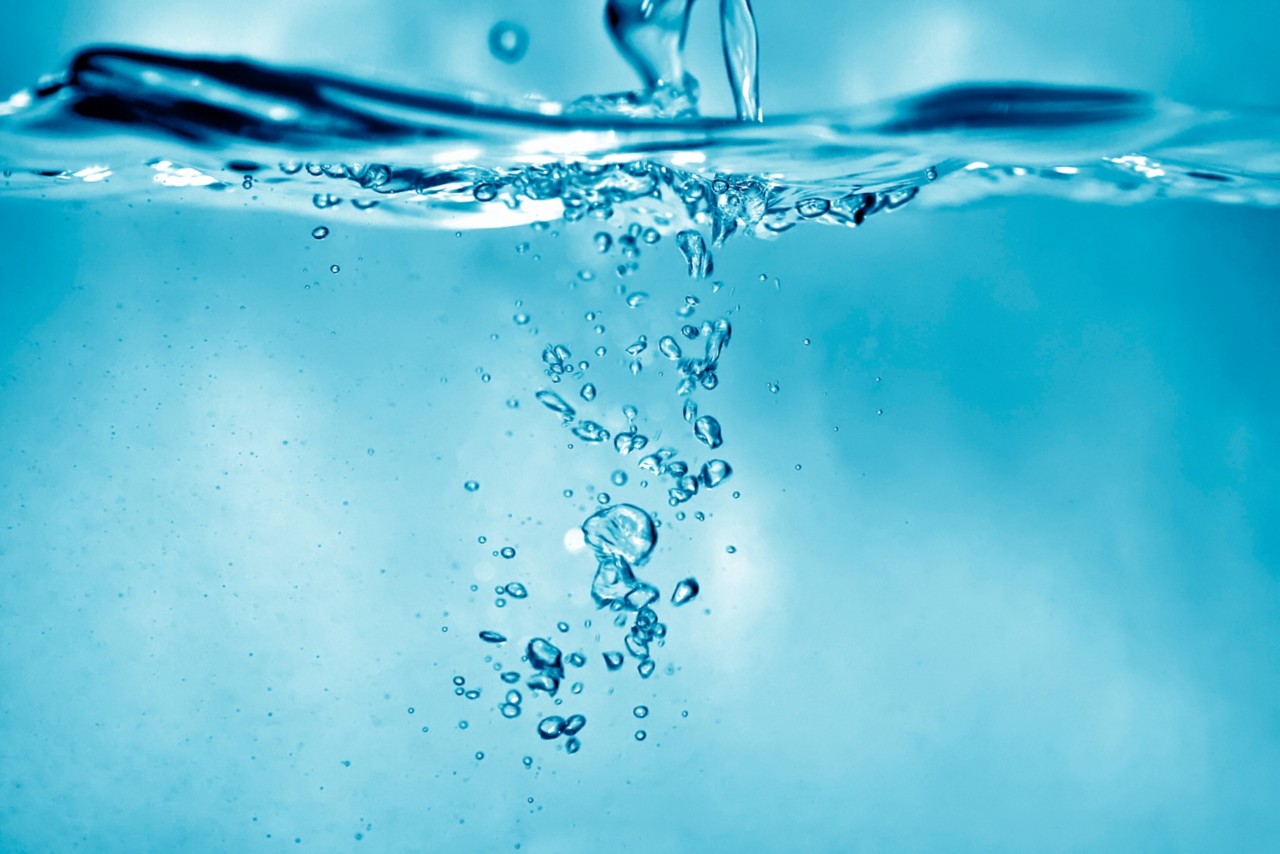Stop Wasting Water and Money. FIND A LOCAL PRO
Water is the essence of life, with all of your body’s major systems dependent on it to function. It helps regulate your body temperature, dissolve minerals and nutrients, and carry oxygen to your cells, among many other functions. While everyone knows that water is good for you, many people have trouble drinking enough water and staying hydrated. If this sounds like you, we’re here to help you learn how to drink more water throughout your day.
How Much Water Should You Drink a Day?
You’ve probably heard you should drink 8 cups — or 64 ounces — of water per day. However, this recommendation isn’t entirely accurate. 1
If you’re looking for a number, The National Academy of Medicine (NAM) estimates that most people need a daily water intake of:
- Men — 125 ounces of water per day
- Women — 90 ounces of water per day
It's important to note that roughly 20% of your daily water comes from food, even more so if you eat a lot of fruits and vegetables. Additionally, NAM acknowledges that broad recommendations regarding daily water consumption aren’t ideal since it depends on numerous factors, such as your age, weight, activity level, health status, and location.
Instead, you need to understand your body’s fluid needs. For example, if you work outside and live in a hot climate, you may need to consume more water than someone who works from home all day.
In the end, the best solution is to listen to your body. Drink water whenever you're thirsty, and don't overthink it. Additionally, check your urine color when you head to the restroom. Pale, yellowish urine means you’re likely well-hydrated, while a darker shade of urine resembling apple juice could mean you’re dehydrated.
We are water Experts
Water quality is non-negotiable. To prove it, we've built state-of-the-art water quality labs and filled them with the best and brightest scientists — all so we can provide you with the best water of your life.

Tips to Increase Water Intake
If you’re looking for ways to increase your water intake, these tips can help you drink more water and stay hydrated throughout the day:
Set a Routine
Humans are creatures of habit, so establishing a water intake routine throughout the day can help you stay on track with your hydration goals. An easy habit to form is to drink a glass of water before breakfast, lunch, and dinner. If you do this, you could add about 24 ounces of water to your daily intake. You can also make it a habit of drinking a glass of water when you wake up or after brushing your teeth.
Use a Refillable Water Bottle
Another great tip is to find a stylish reusable water bottle that you’ll love to take anywhere you go. Whether you’re running errands or hitting the gym, having a reusable bottle by your side will help you drink more water. Plus, opting for a reusable water bottle can help reduce your carbon footprint by not relying on single-use plastic water bottles.
Track Your Progress with a Hydration App
If you want to be more meticulous with your daily water intake, consider using a hydration app like Waterlogged or Hydro Coach on your phone or tablet. Many of these apps allow you to track what you drank a given day, send you reminders to drink more water, and even calculate your recommended daily water intake.
Eat Your Fruits and Vegetables
As mentioned before, roughly 20% of your daily water intake comes from the food you eat. If you consume more water-rich foods like fruits and vegetables throughout the day, it may be easier for you to stay hydrated. Lettuce, celery, watermelon, zucchini, and cantaloupe are some of the most hydrating foods you can eat.
Add Flavor
If you don’t like the taste of water or want to switch it up now and then, try infusing your water with fruit. It’s a great way to add some serious flavor to your water while staying hydrated. Plus, fruit-infused water tends to be much healthier than the powdered or liquid water enhancers you can buy at the grocery store. Why? Many water enhancers contain added sugar, artificial sweeteners, and other additives that might harm your health.
What's in your water?
start here
Worried about your water? Take control with our at-home water test kit. We'll analyze your water and recommend the best filtration or softening solution for your specific needs.


Water 101
Unleash the secrets of your H2O! Explore where water originates and discover the various water filtration solutions that transform it into drinkable water.
1 This is a study undertaken by the Standing Committee on the Scientific Evaluation of Dietary Reference Intakes (the DRI Committee) of the Food and Nutrition Board, Institute of Medicine, The National Academies, in collaboration with Health Canada (see Appendix B for a description of the overall process and its origins). This study was requested by the Federal Steering Committee for Dietary Reference Intakes, which is coordinated by the Office of Disease Prevention and Health Promotion of the U.S. Department of Health and Human Services, in collaboration with Health Canada.
National Academies of Sciences, Engineering, and Medicine. 2005. Dietary Reference Intakes for Water, Potassium, Sodium, Chloride, and Sulfate. Washington, DC: The National Academies Press. https://doi.org/10.17226/10925
Disclaimer: The information on this website has not been reviewed by the FDA. Products offered for sale herein are not intended to treat, cure or prevent any disease or health condition. No medical claims are being made or implied. Contaminants mentioned are not necessarily in your water.




